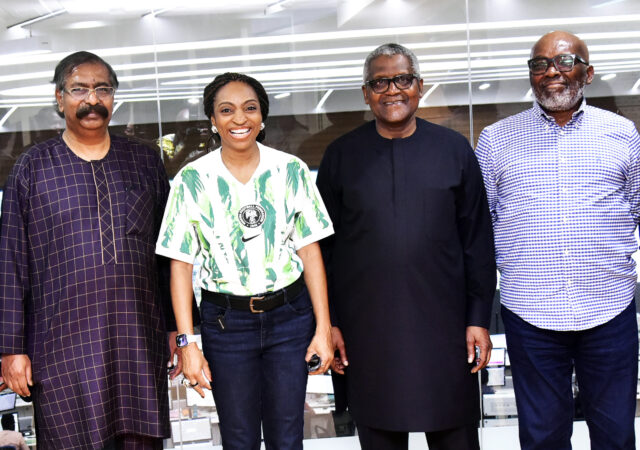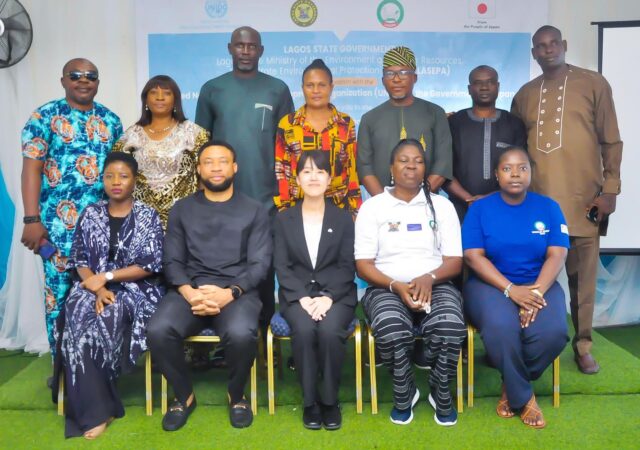- African Development Bank and the International Committee of the Red Cross (ICRC) stress co-creation to build resilience in Africa
- The exchange highlighted the importance of strategic partnerships to reduce humanitarian funding gaps in the medium to long-term by pursuing a shared preventive and resilience building approach
Following the signing of a Memorandum of Understanding between the African Development Bank and the International Committee of the Red Cross in December 2023, representatives of both institutions met in Abidjan to take stock of progress and to further strengthen the strategic partnership. The ICRC team led by Regional Director for Africa, Patrick Youssef visited the Bank’s headquarters on 21 May 2024.
“We welcome the ICRC delegation’s visit to the Bank’s headquarters. Together, within the framework of the Bank’s new Ten-Year Strategy and through our MoU, we are committed to leverage our collective strengths. This includes jointly expanding impactful programs that foster resilience and make a tangible difference in the lives of the most vulnerable affected by fragility, food insecurity and climate change in Africa,” noted Marie-Laure Akin-Olugbade, African Development Bank Vice President for Regional Development, Integration and Business Delivery.
Youssef said: “In times of increasing conflicts, displacements and humanitarian needs in several parts of the African continent, our partnership to find durable solutions in new and protracted crises becomes ever more pertinent. At the ICRC we not only reiterate the criticality of International Humanitarian Law (IHL), but we are also committed to Sustainable Humanitarian Impact”.
He also appreciated the African Development Bank’s strong focus on conflict prevention, addressing the complex and multifaceted drivers of fragility and staying engaged during conflicts to bolster resilience pathways in Africa.
Yero Baldeh, Director, Transition States Coordination Office at the African Development Bank said in alignment with the Bank’s Fragility and Resilience agenda, it shares with ICRC the urgency of advancing innovative, bolder, context-specific and conflict-sensitive interventions with scalable solutions.
“It’s a partnership that we value not only in terms of the neutrality and capacities of ICRC, but also in terms of the presence, access and essential protection – of people and investments – in active conflict situations,” Baldeh said.
Other participants such as Dr. Martha Phiri, Director of the Human Capital, Youth and Skills Development Department, and Acting Director of the Gender, Women and Civil Society Department at the African Development Bank, highlighted the value of applying a gender lens across Bank operations and jointly with partners such as ICRC.
She said the Bank’s Gender Strategy made sure that women are not just beneficiaries of small programs, but are active players in terms of building economic resilience. “Women need investments, and the successful partnership between the bank and ICRC is evidenced through the economic empowerment of vulnerable women project in the Sahel region (Niger, Mali, and Chad) that enhanced the resilience of 11.000 people.”
ICRC is one of the Bank’s critical partners and work is ongoing to develop an operational framework agreement to streamline collaboration procedures for co-creation and strengthened operations.
The exchange highlighted the importance of strategic partnerships to reduce humanitarian funding gaps in the medium to long-term by pursuing a shared preventive and resilience building approach. It also stressed the critical role of advanced technologies in improving the efficiency and quality of the Bank’s programming through remote appraisal, supervision, monitoring and evaluation via the use of satellite imagery.
Both organizations also reiterated their efforts to expand collaboration in knowledge/analytics, policy dialogues, increased capacity development and shared learning opportunities, and to boost resource mobilization and concrete co-financing opportunities.
Speaking on the long standing and instrumental partnership between the two organizations, Millicent Omukaga, representing the office of African Development Bank President, Dr. Akinwumi A. Adesina, expressed appreciation for the excellent collaboration that has evolved significantly over the past years and continues to expand.
The ICRC Delegation visiting the Bank included the Head of the Regional Delegation in Abidjan, Loukas Petridis; Principal Advisor for Institutional Partnerships at ICRC, Jean-Francois Yao. Other ICRC staff joined the meeting online. From the African Development Bank, Frederik Teufel, Jerome Berndt and Aissatou Dosso, facilitated the exchanges, with several other Bank staff from other departments joining in.







